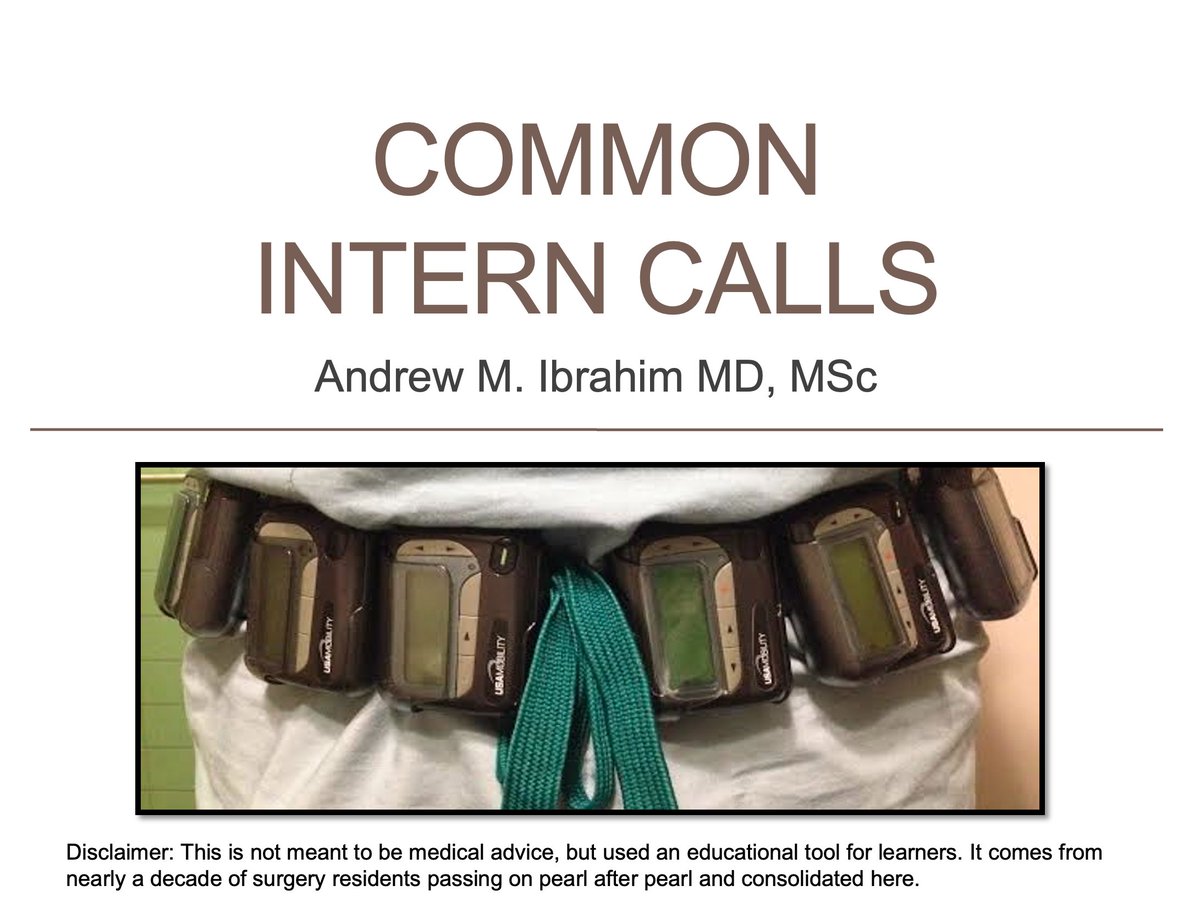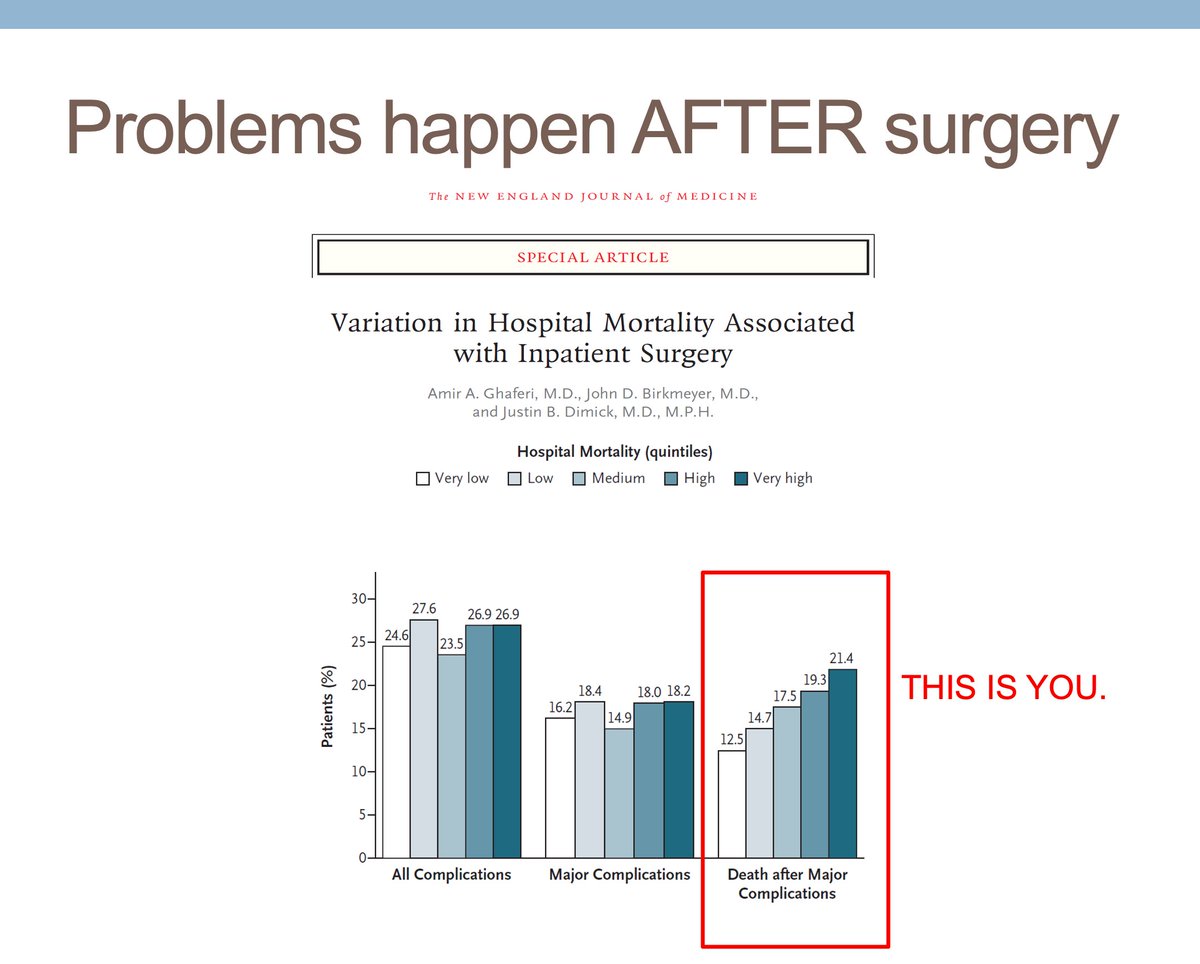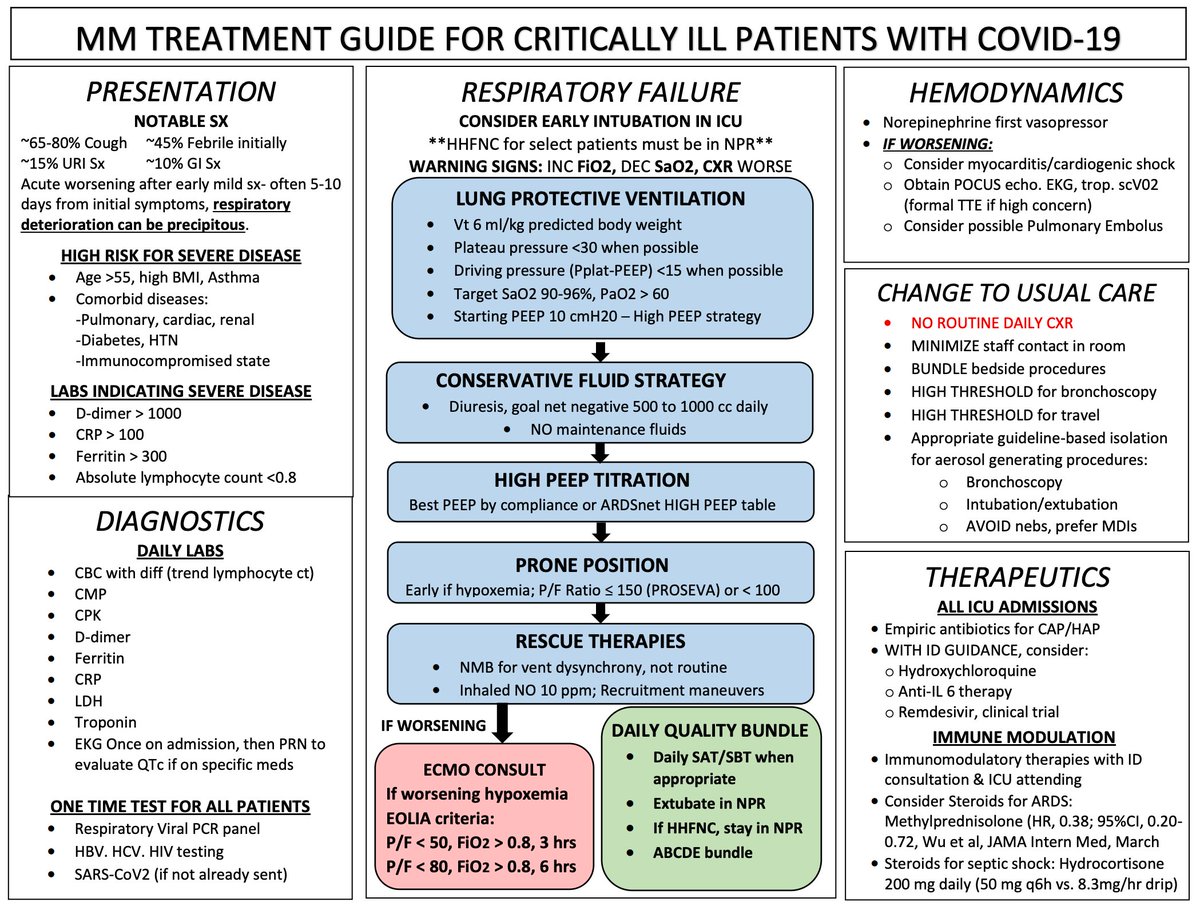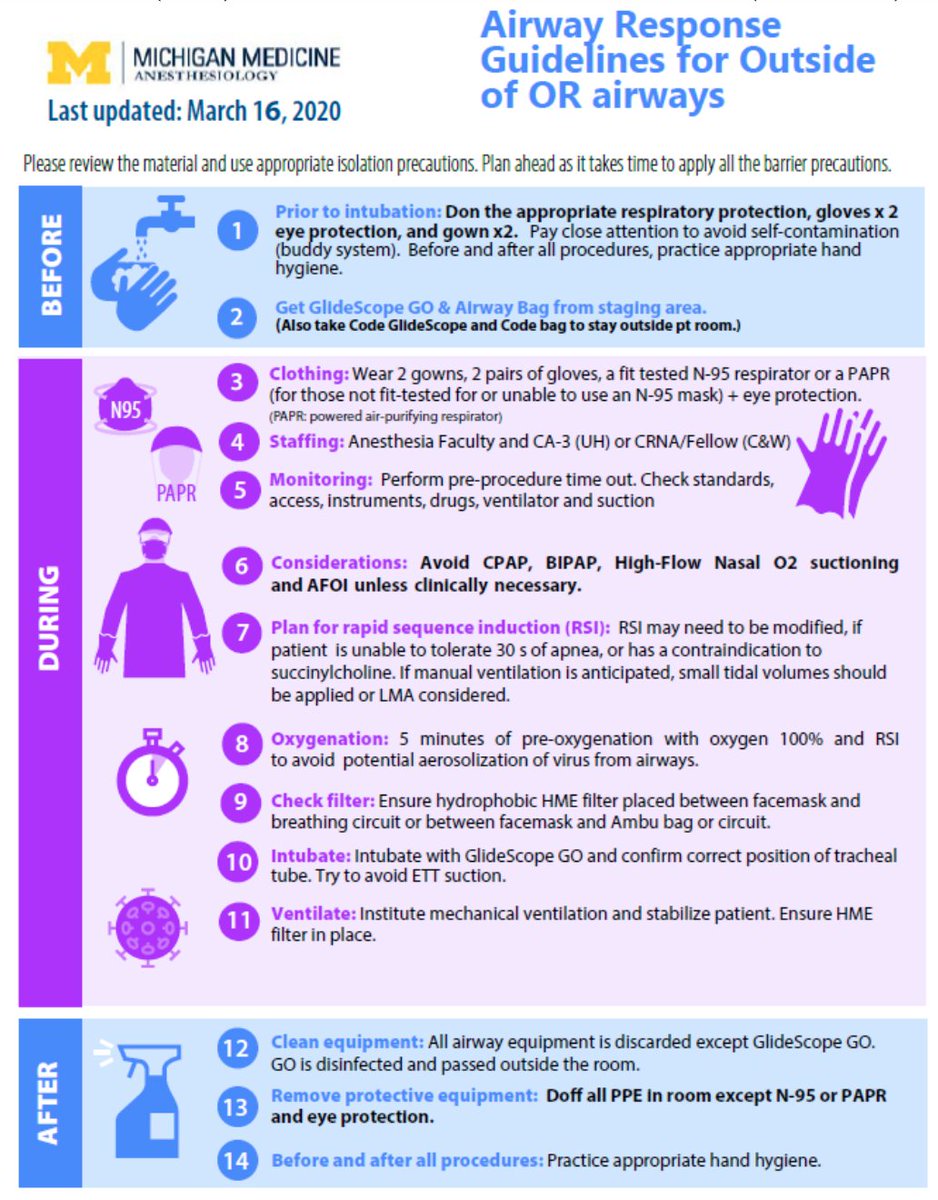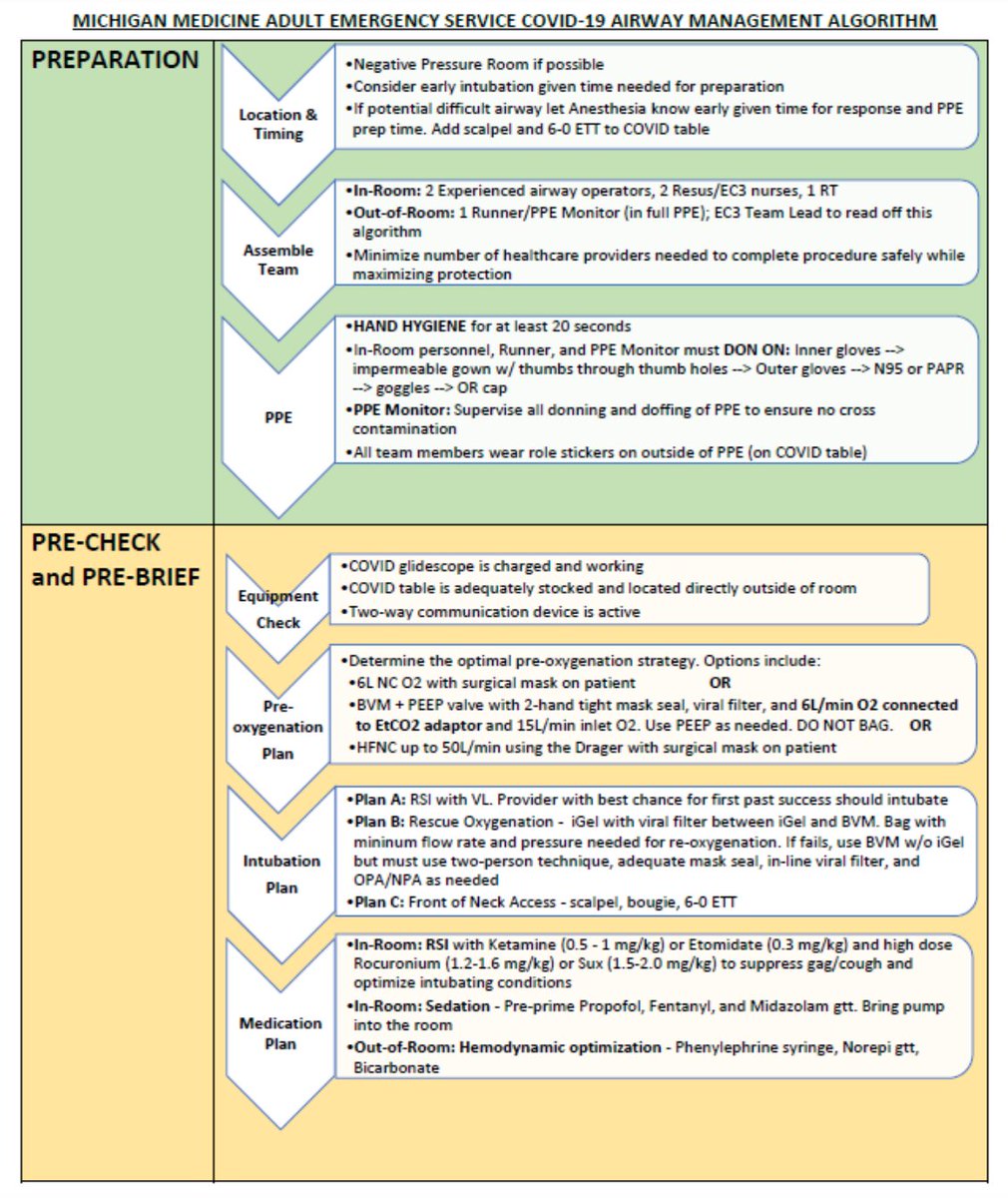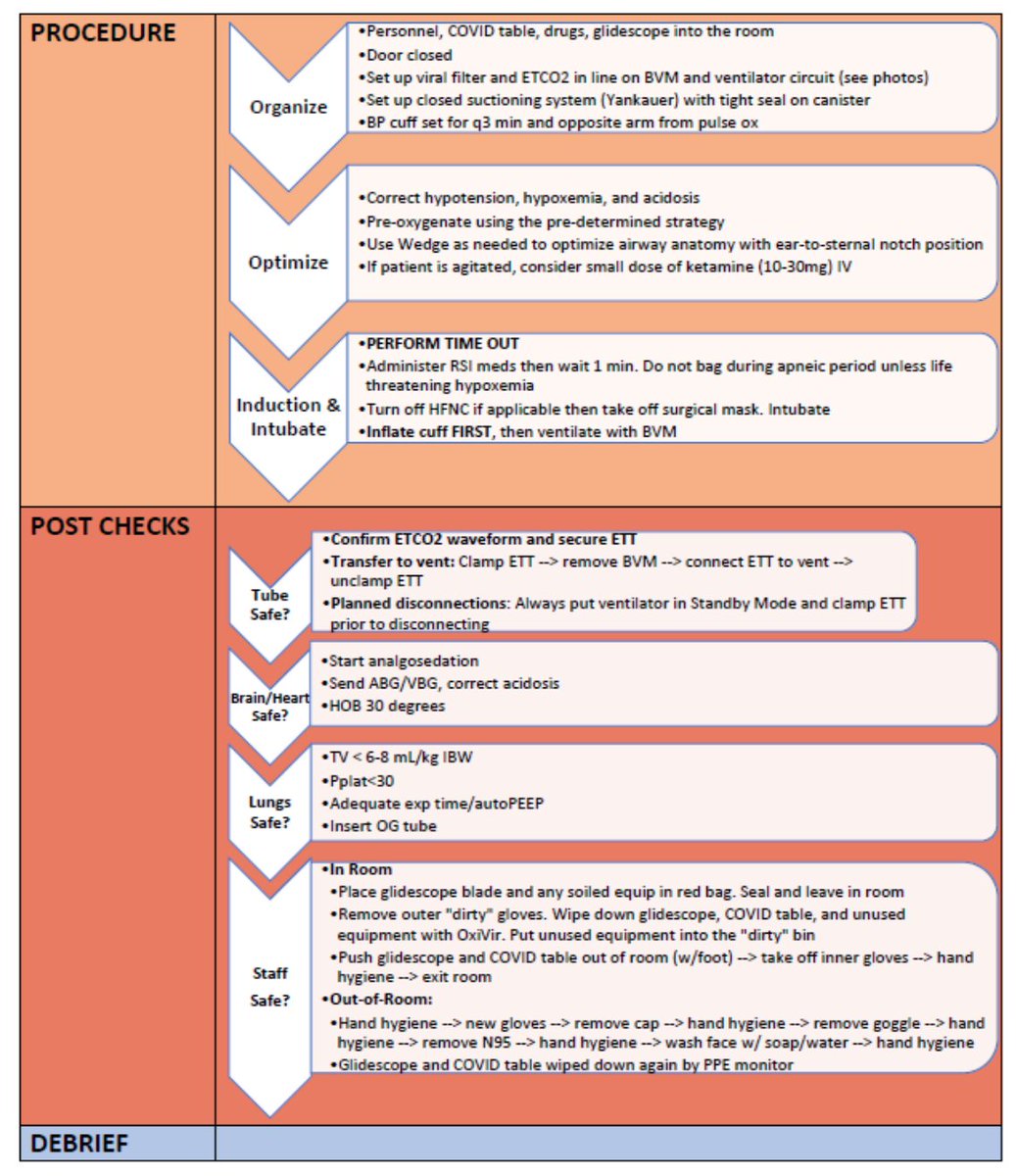
Thread /
The 5 sections of an effective Specific Aims Page when writing a R01. #ASC2023 #FOAmed
1/ Introduce the topic.
Less numbers (everyone has stats), keep it short and pithy. Communicate the fierce urgency of NOW.
The 5 sections of an effective Specific Aims Page when writing a R01. #ASC2023 #FOAmed
1/ Introduce the topic.
Less numbers (everyone has stats), keep it short and pithy. Communicate the fierce urgency of NOW.
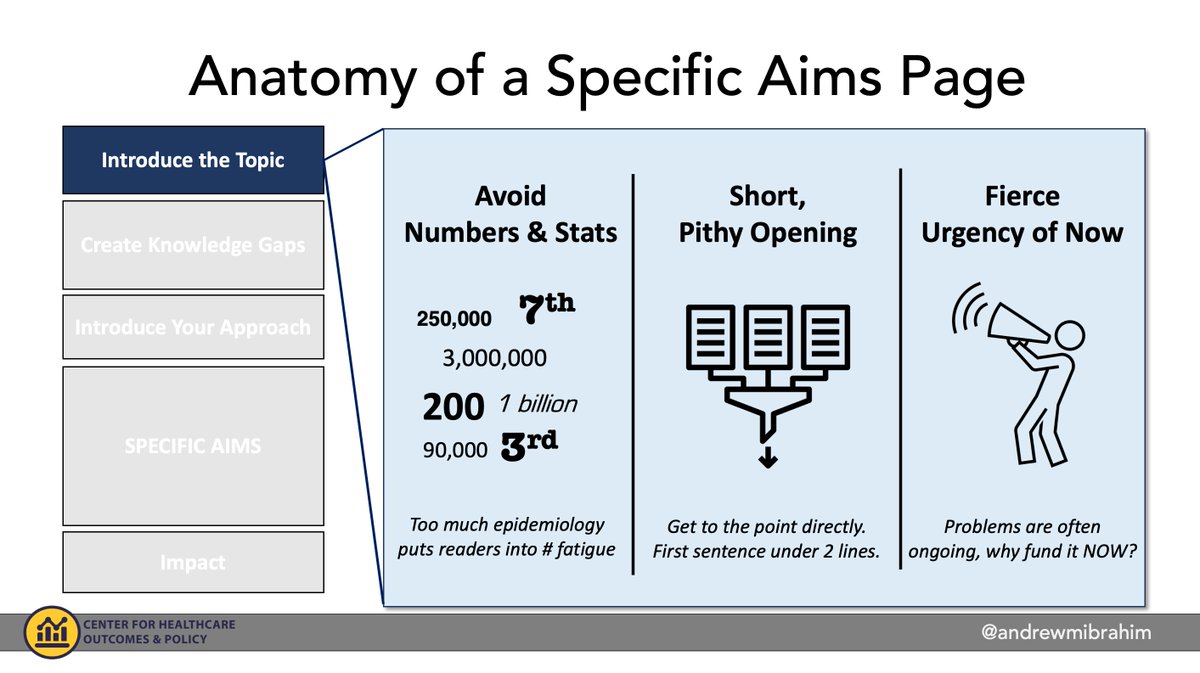
2/ Create knowledge gaps.
Make clear is what known and unknown, stick to relevant gaps, and establish a pattern of parallel writing.
Make clear is what known and unknown, stick to relevant gaps, and establish a pattern of parallel writing.

3/ Introduce your approach.
Contrast the gaps you just laid out in the prior section, emphasize your differentiators and streamline redundancy.
Contrast the gaps you just laid out in the prior section, emphasize your differentiators and streamline redundancy.

4/ Alas, the specific aims.
We like to stick to 3 aims (though some successfully deviate from this). State the aim, explain what you're going to do (and provide a hypothesis.)
We like to stick to 3 aims (though some successfully deviate from this). State the aim, explain what you're going to do (and provide a hypothesis.)

5/ Impact.
Explain the immediate impact, but also the broader impact. Be sure to know you read about the funder/institute, and use their language here.
Explain the immediate impact, but also the broader impact. Be sure to know you read about the funder/institute, and use their language here.

• • •
Missing some Tweet in this thread? You can try to
force a refresh








